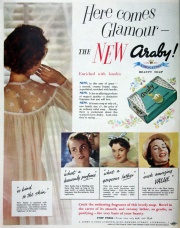J. Bibby and Sons
1830 Edward Bibby bought the Conder Mill, near Quernmore, Lancaster.
1878 The mill was passed via his son James Bibby to Edward's two grandsons, Joseph Bibby and James Bibby, who ran the business as J. Bibby and Sons. Around this time, the business first started to produce compound animal meal. It is claimed they produced the first calf meal.
1885 Company established by Joseph Bibby, J.P., and James Bibby. After a fire destroyed Conder Mill, the business continued to operate at Fleet Square Mills, Lancaster.
1895 By this time, production at both the Fleet Square Mills and the company's new mill in Liverpool had reached 3,000 tons per week.
1914 Seed crushers. Speciality: feeding stuffs for cattle. Employees 2,000. [1]
1951 Issue of shares. '...to acquire and take over the business originally founded by Mr James Bibby, Snr, and established a partnership in 1878, under the name of J. Bibby and Sons, with his two sons, Mr Joseph Bibby and Mr. James Bibby. The Company was an exempt private company until its conversion into a public company March, 1951 The business of the Company consists part of seed crushing, seed extracting, oil refining and the manufacture of compound cooking fats. This part of the Company's Business is at present and has since September 1939, been carried by the Company as manufacturing agent for the Ministry of Food (with the exception of small fraction of the cooking fats business) the Company receiving payment for its services at agreed rates. The business also comprises the manufacture and sale animal feeding stuffs, soap, glycerine and lecithin. The Company enjoys a substantial share the United Kingdom trade animal feeding stuffs which it distributes through more than 190 selling agencies. The Company's other products are distributed through a separate sales organisation over most of the country. The Company has two wholly owned subsidiary companies, namely Henry Cooke and Company (1932) Limited and The Waterloo Transport Co...the former...carries on the business of manufacturers of paper at Waterhouse Mill, Milnthorpe, Westmorland.....the companies principle factories and warehouse are situate on important sites on the River Mersey....also recently acquired a factory at Bridgwater, Somerset...[much more detail]' The Directors were-[2]
- Henry Percy Bibby - Chairman
- John Pye Bibby - Financial and Research Director
- James Edward Bibby - Production Director
- John Killip Bibby - Commercial Director
- Henry Mason Bibby - Personnel and Production Director
- Norman Millington Bibby - Commercial Director
- Charles Leslie Bibby - Production and Research Director
- Maurice Scholes - Production Director
1968 Following its progression into seed crushing, soap manufacturing, vegetable oil refining and paper production, the company acquired Princes Foods but it was not profitable so was later sold
J. Bibby and Sons later went onto become part of ABN (Associated British Nutrition), which is part of Associated British Foods.
See Also
Sources of Information
- ↑ 1914 Whitakers Red Book
- ↑ Yorkshire Post and Leeds Intelligencer - Tuesday 13 March 1951
- Trademarked. A History of Well-Known Brands - from Aertex to Wright's Coal Tar by David Newton. Pub: Sutton Publishing 2008 ISBN 978-0-7509-4590-5







